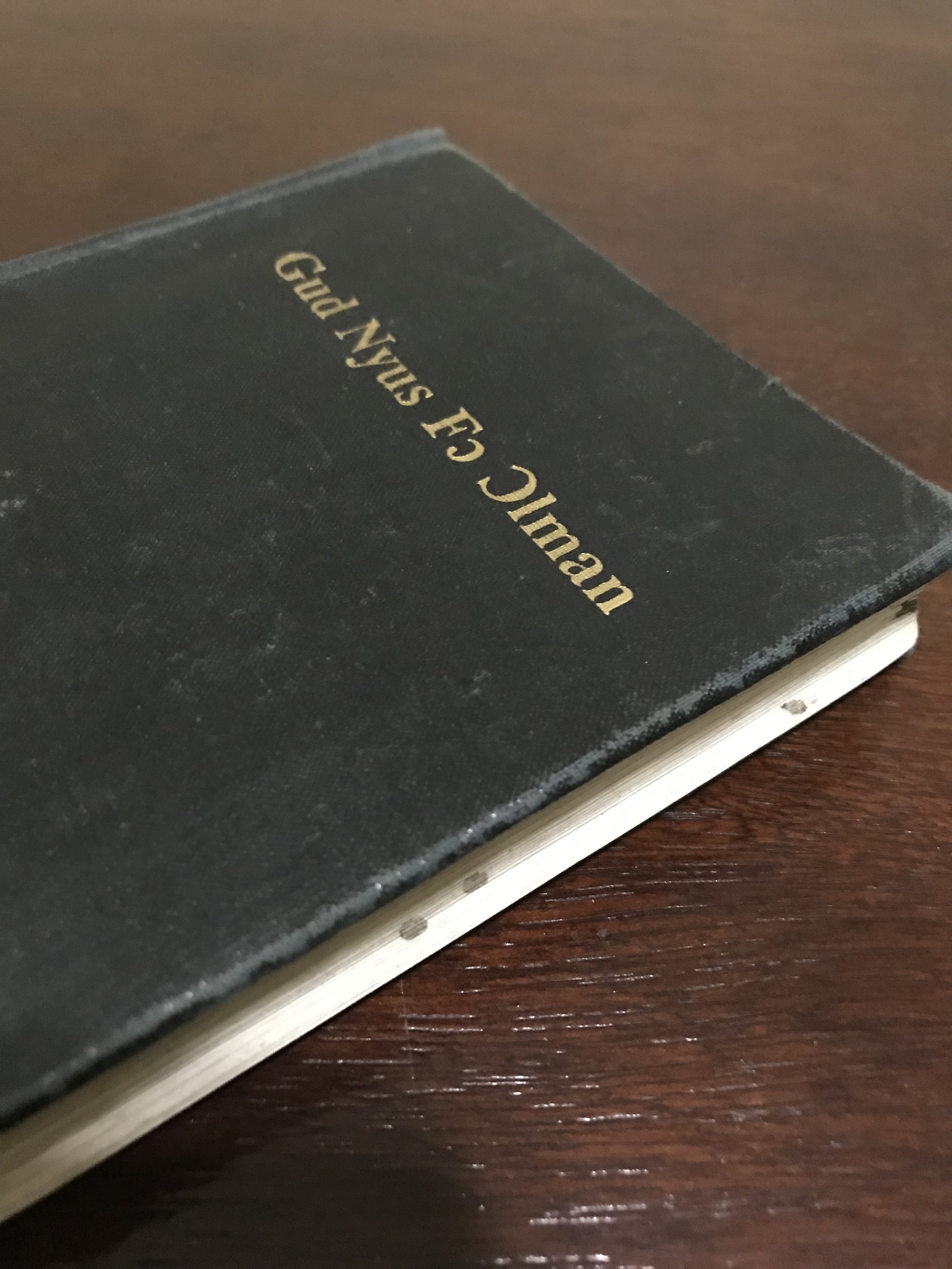A Little Lesson in Krio
I started lessons in Krio a few weeks ago with one of the assistant pastors of Charles Davies Memorial UMC, a church that I have attended several times. When I got here I knew that I was going to want to pick up a little Krio, although I didn’t expect it to be totally necessary. I learned pretty quickly that if I didn’t learn Krio, I’d be missing about half of what happens around here. That first week, what I heard most often after people heard with pleasant surprise that my post was longer than a few months, was the question of when I was going to learn Krio. “You need to start learning Krio.” I heard that a lot.
I’ve been assured many times and lots of different ways that I’d pick it up in no time. “It’s just broken English. Easy.” “It’s just bad English. You won’t have any trouble.” I’ve come to bristle a little bit when I hear them say that, truth be told. Because truth is, Krio is a language in it’s own right. It’s a language of survivors.
When Sierra Leone was chosen as a place where emancipated slaves would return to Africa, it became a place for vibrant cultural mixing. People from England and the Americas (Jamaica and Nova Scotia) came back and formed a people group—the Krios—which lived among the tribes already here. The language that emerged is a creole language, a mix between English, French, local tribal languages like Temne and Mende, and even some Spanish. It is a creative coming together of so many histories and experiences. I love it.
I’ve long thought of myself as someone who’s gifted in languages so I didn’t think I’d have too much trouble picking it up. What I’m realizing is that learning a new language at 35 is a little different than at 14, when I started studying Spanish. It's also a challenge because I find that I can just switch back to English and people will understand me. So it’s not exactly the immersion experience I had in 2006 when I spent six weeks in Mexico. But the people are very gracious. And what they say is true. Just the effort goes a LONG way. I said hello in Krio ("Una Kushe") the other day at church when I was being introduced and the whole room erupted in appreciation.
So I thought today I’d give you a little introduction to Krio. Below is the front of the bulletin for Sunday’s Africana service. It was a service put together by the United Methodist Women in celebration of all things Africana. Normally in worship the formal aspects of worship are in English. The bible is read in English, the confessions are recited in English, the hymns are in English. Krio comes in only during the more informal times - during singspiration, the announcement time, and preaching. But this special service was in Krio and they brought in the other languages (Mende, Temne, Fullah, Kono, Limba, and Sherbo) as we went along.
So here it is. It really is mostly a form of English, so if you try to say it out loud it will sound like English with an African accent. It’s fun. You should try it.
I don't have a great translation for Di Big Alego. My driver doesn't do direct translations as much as he tells me what it means. And so, for example, the Bishop would be a big alego. The president would be a big alego. It's an honored leader. But you get idea.
So next time I see, I'll ask you "Aw di bodi?" (Literally hows your body, but more like how are you?). And you can answer, "A tel God Tenki" (Literally I tell God thanks, but more like I'm well, thanks to God).
This is an adventurous life. :-)



